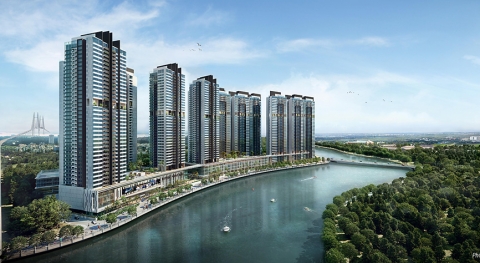
Effective Solutions for Removing and Preventing Scale in Boilers
Boilers are essential equipment in factories and manufacturing plants, providing steam for industrial processes. However, one of the biggest issues affecting boiler efficiency and durability is scale formation. Reechem introduces effective solutions for removing and preventing scale in boilers, helping businesses optimize their production operations.
.jpg)
1. Why Is Scale Treatment in Boilers Necessary?
1.1. Impact of Scale Formation
Scale buildup in boilers causes several negative effects:
- Reduced heat transfer efficiency: Scale layers prevent heat from transferring from the fire to the water, reducing steam generation efficiency.
- Increased risk of boiler damage: Scale can cause overheating of metal components, potentially leading to pipe explosions.
- Higher fuel consumption: Thick scale forces boilers to operate at higher temperatures, increasing fuel costs.
- Shortened boiler lifespan: Scale leads to pipe erosion, reducing the overall lifespan of the equipment.
- Environmental pollution: Higher fuel consumption results in increased CO₂ emissions and other harmful gases.
- Clogged pipelines: Thick scale deposits can block pipes, reducing water and steam flow.
- Reduced operational safety: Uncontrolled scale buildup can increase boiler pressure, posing serious safety risks.
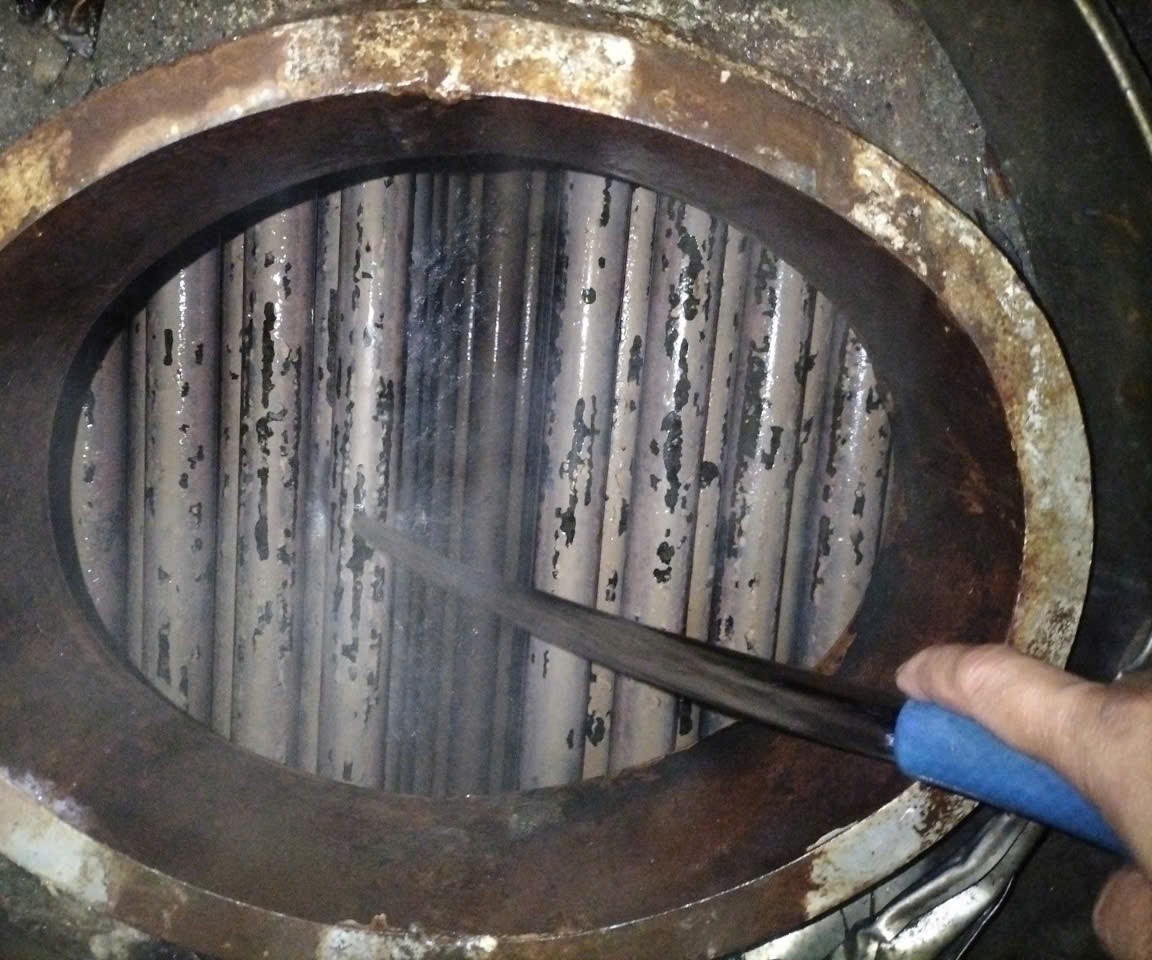
2. Effective Scale Treatment Solutions
2.1. Pre-Treatment Before Water Enters the Boiler
- Water softening: Use ion exchange resin systems to remove calcium (Ca²⁺) and magnesium (Mg²⁺) ions, reducing scale formation risks.
- Oxygen removal: Use chemical treatments or degassing systems to eliminate dissolved oxygen, reducing corrosion risk.
- Filtration of incoming water: Implement mechanical filtration systems to remove dirt, debris, and suspended solids before water enters the boiler.
- Demineralization systems: Remove all scale-forming ions using reverse osmosis or ion exchange methods.
- pH adjustment: Maintain water pH at optimal levels to prevent mineral precipitation.
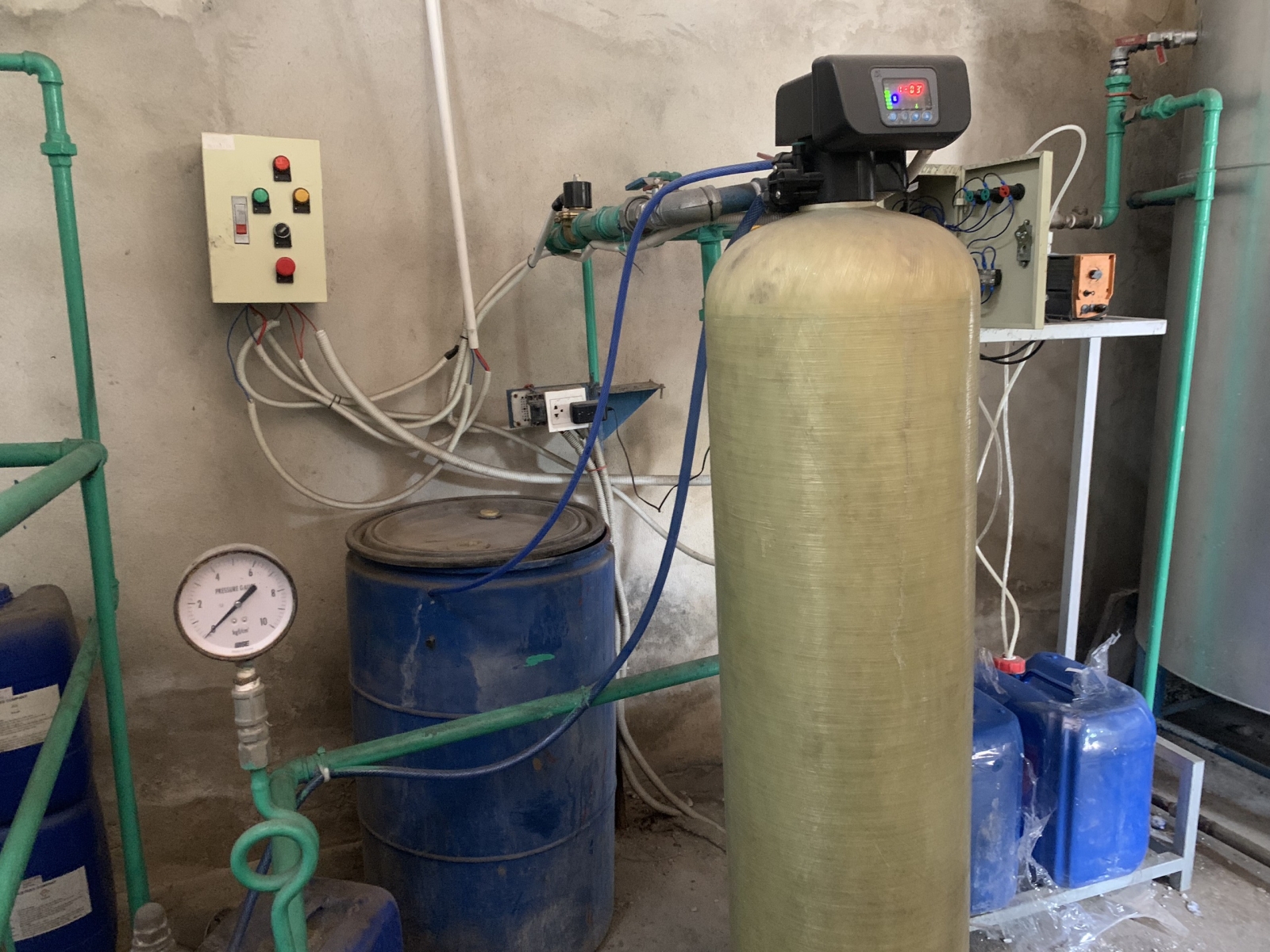
2.2. Use of Anti-Scale Chemicals
- Dispersants: Break down and prevent scale deposits from forming.
- Precipitation inhibitors: Prevent scale-forming ions from solidifying into deposits.
- Oxygen scavengers: Remove oxygen from water, reducing corrosion risks.
- pH stabilizers: Maintain an optimal pH level to prevent corrosion and scale buildup.
- Anti-foaming agents: Reduce foaming and prevent scale from being carried into the steam.
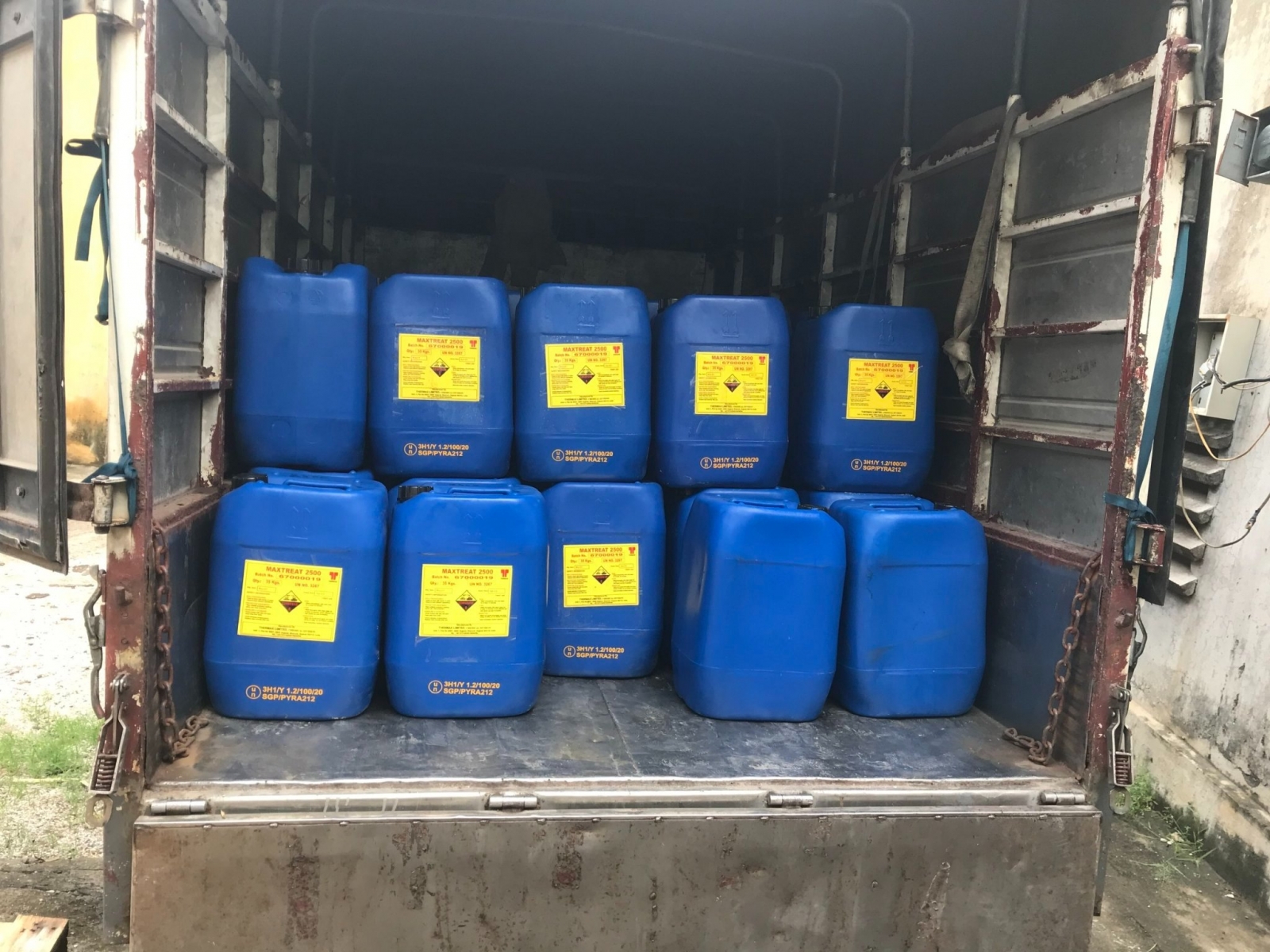
2.3. Blowdown to Remove Scale Deposits
- Regular blowdown: Helps remove dissolved impurities that accumulate inside the boiler.
- Continuous blowdown: Reduces dissolved salt concentrations to prevent scale formation.
- Controlled blowdown frequency: Ensures that water discharge is optimized to minimize water and energy waste.
- Automated blowdown systems: Precisely control blowdown timing and volume to reduce energy loss.
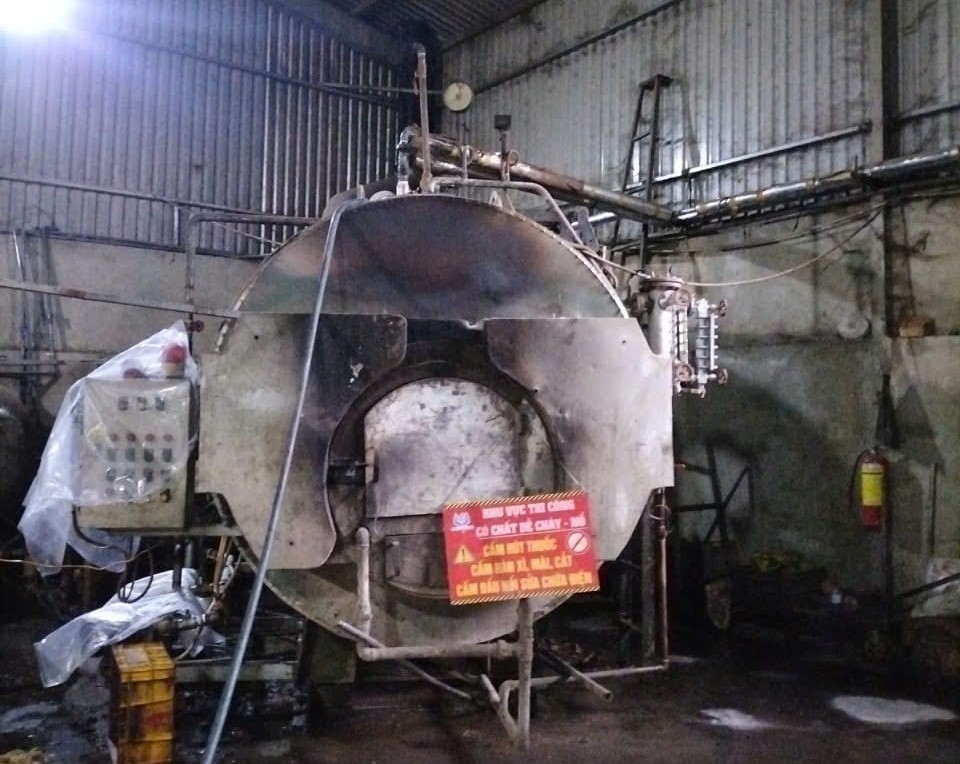
2.4. Routine Boiler Maintenance
- Periodic pipe cleaning: Use mechanical or chemical methods to remove accumulated scale.
- Frequent water quality testing: Ensure that the feedwater meets standards, reducing scale formation risks.
- Heat transfer surface maintenance: Keep surfaces clean to improve heat transfer efficiency and save fuel.
- Inspection of heat exchangers: Ensure that heat exchangers function properly without scale buildup or blockages.
- Monitoring pressure and temperature: Maintain stable operation, preventing overheating or overpressure issues.
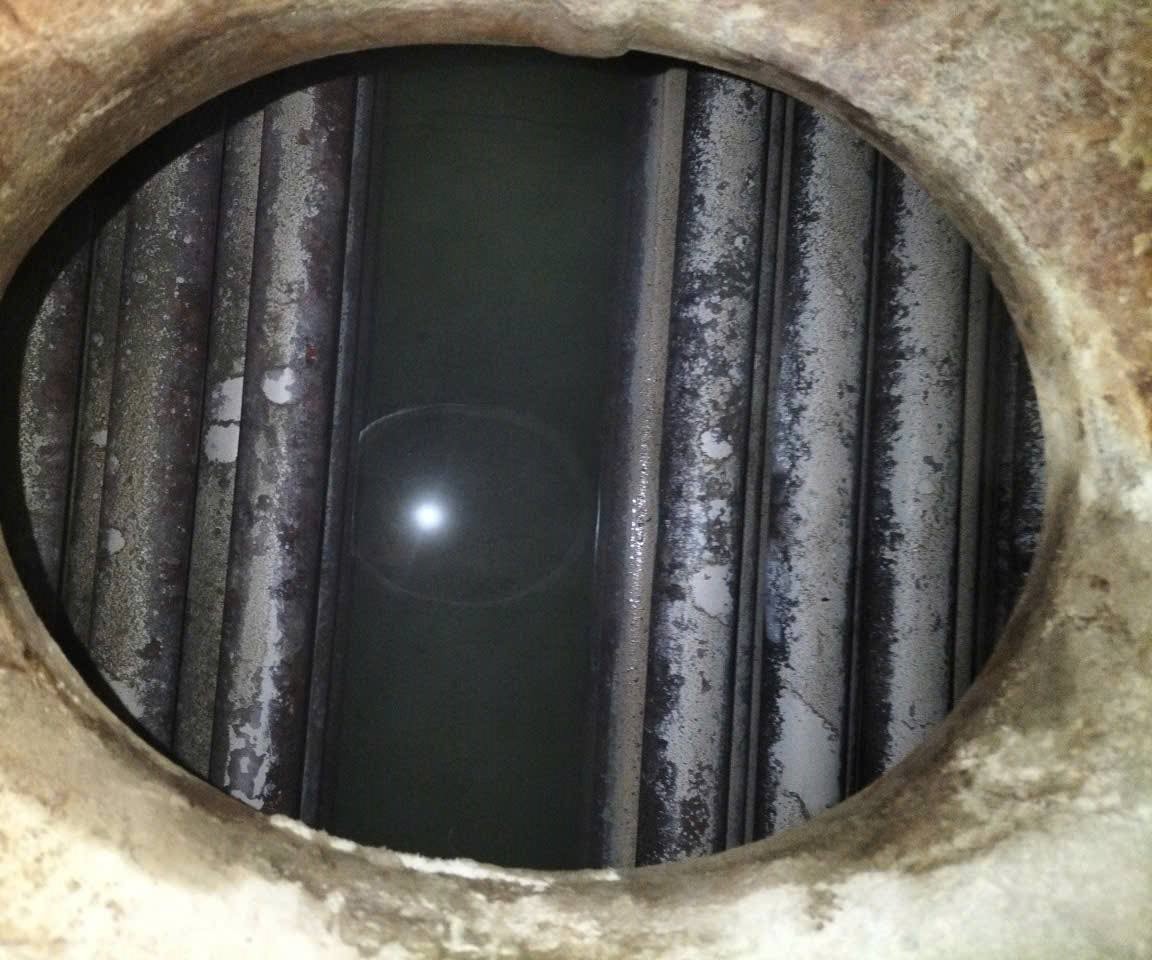
3. Advanced Technologies for Scale Treatment
- Ultrasonic technology: Uses sound waves to break up and prevent scale formation.
- Electromagnetic systems: Alter the crystal structure of minerals, reducing their ability to form scale.
- Automated water treatment systems: Use sensors to measure scale concentration and automatically adjust water treatment processes.
.jpg)
4. Conclusion
Effectively treating, removing, and preventing scale in boilers is crucial for maintaining operational efficiency, reducing costs, and extending equipment lifespan. Reechem provides high-quality chemical solutions and water treatment systems to help businesses operate their boilers safely and efficiently. Contact us for detailed consultation on Reechem's products and services!
Additionally, Reechem offers periodic boiler inspection and maintenance services to help businesses detect potential issues early and implement timely solutions, ensuring safe and efficient boiler operation. Let Reechem be your trusted partner in maintaining and improving boiler performance!
For Consultation, Contact Us:
REECHEM CO., LTD
📍 Address: 5th Floor, Lighthouse Building, 1254 Xô Viết Nghệ Tĩnh, Hòa Cường Nam Ward, Hải Châu District, Đà Nẵng City, Vietnam
📞 Phone: 0236 391 88 68 / Hotline (Zalo): 0789 086 626
📧 Email: info@reechem.com.vn
🌐 Website: reechem.com.vn









